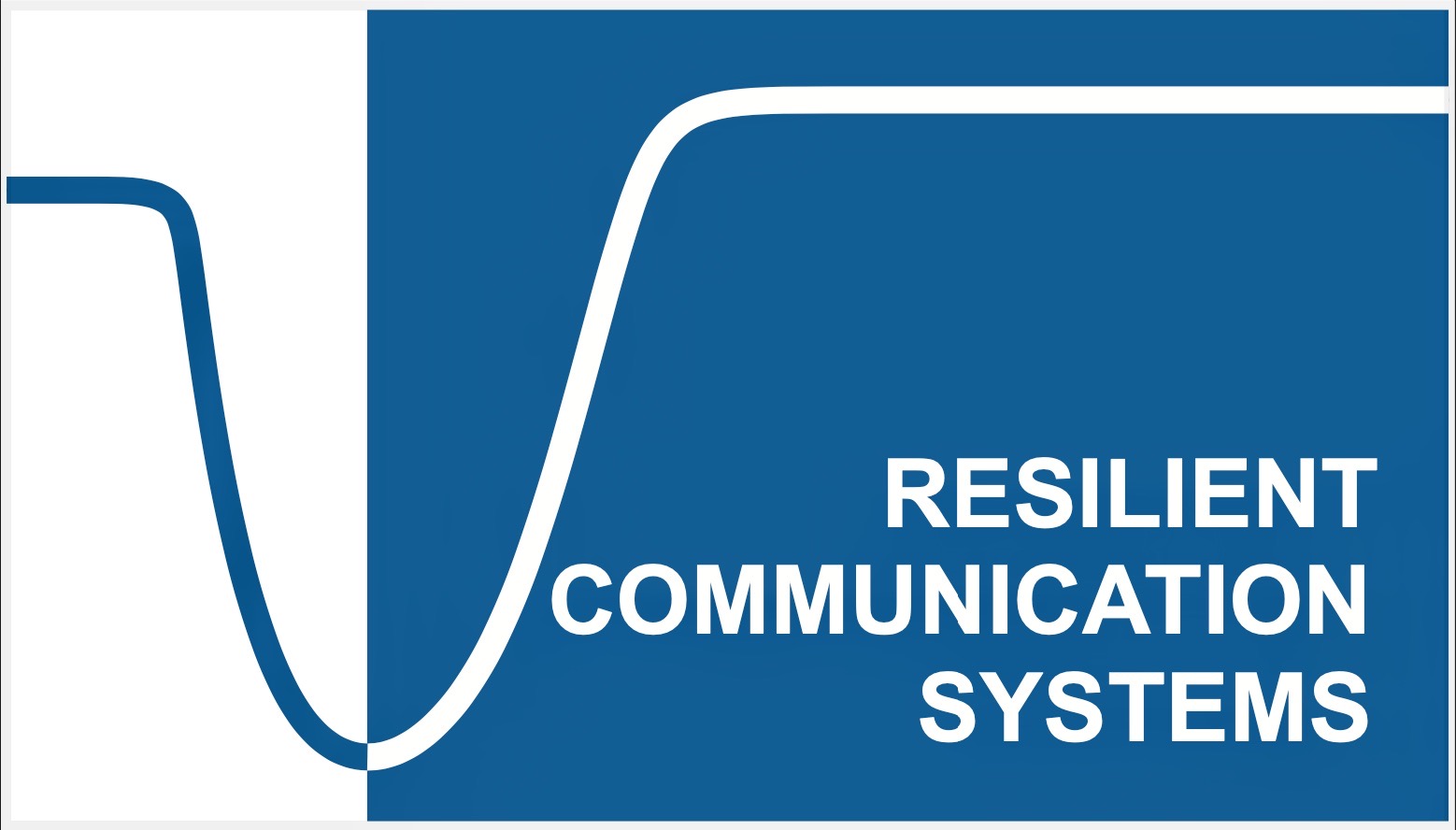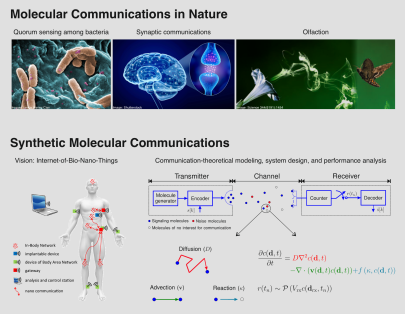Lecture Courses
MIMO Communication and Space-Time Coding
Conventional wireless communication systems transmit information over time and frequency dimensions. These resources are however expensive and scarce which puts a fundamental limit on the capacity of these systems. Modern wireless communication systems exploit a third dimension, namely the space, for simultaneous transmission of multiple independent data streams over the same time and frequency resources. To this end, transmitters and receivers have to be equipped with multiple antennas (thus the name multiple-input multiple-output (MIMO) systems) and employ advance signal processing techniques (known as space-time coding). This lecture course introduces the principles of MIMO communication systems including the modeling and estimation of MIMO channels, space-time coding and MIMO detection schemes, fundamental capacity limits of MIMO systems, and their integration in modern communication standards.
Synthetic Molecular Communications
Synthetic molecular communication (MC) is a new communication engineering paradigm, where information is encoded into the properties of molecules, e.g., their number, type, and time of release, which is in contrast to the conventional radio frequency (RF) communication systems that embed information in the properties of electromagnetic waves, e.g., their amplitude, frequency, and phase. MC is ubiquitous in natural biological systems, which lends credibility to its potential for biomedical applications such as targeting substances, smart drug delivery, and designing lab-on-a-chip systems. A network of nanomachines communicating with each other via MC can help realize the Internet of Bio-NanoThings and enable nanomachines to perform complex tasks. This lecture introduces the key principles of synthetic MCs, the mathematical characterization of the underlying processes (e.g., diffusion, advection, reaction), and the design of basic communication functions (e.g., modulation, estimation, detection schemes). State-of-the-art implementations of synthetic MC systems will be discussed and analyzed. In addition to learning an emerging new communication technology, this lecture offers students the opportunity to significantly deepen their knowledge of the fundamentals of digital communication systems by reflecting on and “re-learning” the entire communication blocks in the exciting world of biological/chemical materials.
Thesis Opportunities (B.Sc./M.Sc.)
Students who wish to complete a Bachelor’s or Master’s thesis with our group are invited to contact us by email. Please attach your transcript of records and outline the research areas that interest you. Even when no topics are listed, we are pleased to discuss possible projects, subject to supervisory capacity.
Molecular Communication Across Time
Bachelor thesis, Master thesis, Type of work flexible
Supervisor: Bastian Heinlein
Student Assistant Positions (HiWi)
Applications for student assistant roles are accepted throughout the year. Please email your transcript of records together with a brief note on your skills and weekly availability. Suitable candidates will be contacted when an assignment becomes available or to explore potential tasks.
Currently no items available.






